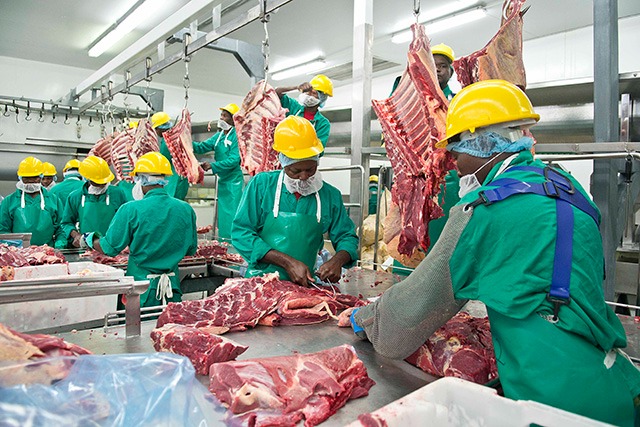As a result of global value chains (GVCs) and technology advancement, countries no longer need to produce complete final products.
Instead, they can ‘insert’ themselves in the value chain stream.
Recent reports have shown how Namibia’s import value (from mostly food products) outweighs what the country exports.
The intersection between trade and the supply chain has become a new frontier. It therefore cannot be ignored in the discourse on GVC.
The latter refers to the different stages of the production process in different countries. This process occurs via backward or forward integration.
The distinction between backward and forward integration is that in the backward integration scenario, a certain country supplies inputs used for production in other countries, whereas forward integration occurs when a certain country provides raw material for production in a different country, of which the products can be converted into final/intermediate goods that can further be exported to other countries.
Africa’s (including Namibia’s) involvement in the GVC has been predominantly through backward integration, where most companies engage in upstream phases of global production systems and networks that provide primary inputs.
This condition eventually forces countries into the low stages of the value chain.
This piece intends to highlight how Namibia can become a powerhouse within the GVC stream and industrial development by linking itself to other countries regionally and internationally, which will eventually improve its global trade position.
Countries such as Costa Rica have adopted forward integration, which has transformed and enabled trade competitiveness by migrating from exporting raw materials to industrial equipment, machinery and electronics.
This has led to industrialisation, economic growth, and sustainable job creation.
Namibia’s participation in the GVC has not evolved.
This is evident from the country’s trade statistics, showing that our export basket mostly comprises raw materials.
The Organisation for Economic Cooperation and Development (OECD) argues that participating in the GVC reduces the cost of imports and exports by 7% and can further lessen trade cost by 1%, which would increase trade income by more than US$30 billion, of which 65% will flow to developing nations.
It is also evident from countless case studies that GVC connectivity has increased exports, which has resulted in job creation, which is an engine for economic growth.
Integrating into the GVC can be a daunting task for developing countries, but Namibia has access to trade networks, an abundance of natural resources, intermodal infrastructure (port, roads) and an encouraging investment environment.
There is no doubt that Namibia connecting with the GVC could be a smooth transition.
Namibia can ‘insert’ itself in the GVC through production and supplying inputs for specific industries’ production in other new markets, which has actually worked for developing countries seeking entry to new industries and learning to make products for export markets.
We cannot ignore the risk associated with the GVC, which includes labour and environmental issues that can be addressed by proper governance and regulatory frameworks.
The argument is that Namibia, through forward integration, could create specific industries for products it intends to add value to for further exports.
These industries could manufacture goods from raw or intermediate goods received from other countries for domestic production, and export such goods elsewhere – thereby contributing to economic growth.
Research and development, domestic policies, and foreign direct investment are critical elements for integration into a sustainable GVC.
These factors could help Namibia getting onto the GVC bandwagon and escape low-value exports.
- Jonas Kamakela is a PhD researcher of supply chain risk and digital transformation. He can be reached at jonas.kamakela@umail.uom.ac.mu
Stay informed with The Namibian – your source for credible journalism. Get in-depth reporting and opinions for
only N$85 a month. Invest in journalism, invest in democracy –
Subscribe Now!






